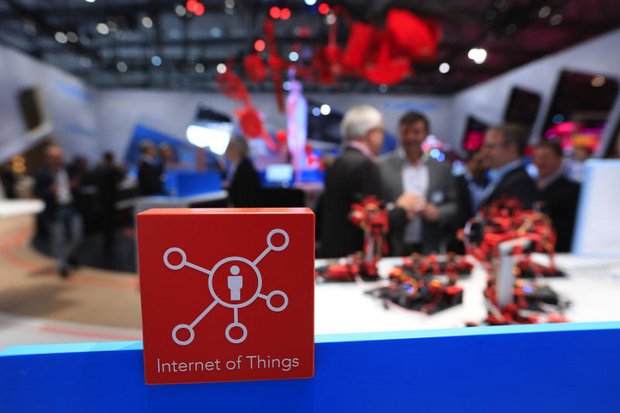
The telecom regulator has tentatively identified spectrum in the 920-925 megahertz band for Internet of Things (IoT) access under the unlicensed platform.
The aim is to establish standards to support a sustainable development of the burgeoning market for machine-to-machine communications and the IoT ecosystem.
The move is part of the National Broadcasting and Telecommunications Commission (NBTC)'s spectrum management roadmap, said NBTC vice-chairman Col Settapong Malisuwan.
"We expect to announce the spectrum range for IoT in June," he said. "The vacant 920-925MHz spectrum is the most suitable band for unlicensed band operation."
The 920-925MHz spectrum band is widely used by enterprises for retail business and security purposes through Radio Frequency Identification (RFID) technology, which uses electromagnetic fields to automatically identify and track tags attached to objects.
A working panel of the NBTC's telecom committee was asked last year to clarify the definition of the IoT service platform. The panel expects to accomplish the tasks in May and submit the work to the telecom committee for approval.
The NBTC needs to clarify the two categories of IoT services and platforms: the spectrum band for IoT services under the unlicensed platform; and the spectrum band under the licence system.
Col Settapong said IoT service providers are likely to be regulated under NBTC's internet service licence because IoT-enabled application and device operations are based on internet networks.
This set-up may result in the IoT service provider being required to apply for an ISP licence from the regulator.
He said several companies last year asked the NBTC for clarity on the regulatory framework and licensing for IoT services.
Based on a NBTC report, IoT-connected devices will reach 20 billion globally by 2020.
IoT is the inter-networking of physical devices, vehicles, buildings and other items to collect and exchange data.
Real-time connectivity of IoT-enabled devices is capable of providing greater operational efficiency across industries and society, which include smart sensor systems, product traceability in logistics, robotics and smart healthcare.
IoT-enabled apps and devices are expected to bring big changes across all business sectors, as well as improving productivity and operations, and reducing cost.
Col Settapong said some telecom operators, including mobile leader Advanced Info Service (AIS), has begun deploying the Narrow Band IoT (NB-IoT), a new low-power wide area technology specifically developed for IoT under the NBTC's licensing system.
Sunsern Samaisut, managing director of Digital & Media Platform, a subsidiary of True Corporation, said IoT is part of the company's business growth strategy.
True is on the verge of developing and testing its IoT network standard at parent firm CP Group's 7-Eleven stores and in the group's farming process.
Mr Sunsern said Digital & Media Platform spent 100 million baht establishing True & Huawei innovation lab for IoT development in Pathum Thani province.
Pratthana Leelapanang, AIS's acting chief marketing officer, said the company started developing IoT services on the NB-IoT early this year following endorsement by the GSM Association.
Onuma Rerkpattanapipat, head of corporate communications and sustainability at Total Access Communication (DTAC), said the company and its partners rolled out a one-year pilot project called "DTAC's smart farm" through the use of IoT solutions.